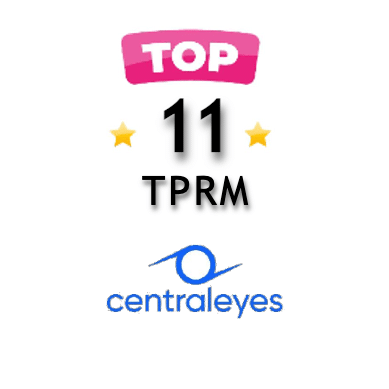In 2023, ESG hit some bumps in the road. New U.S. state laws tried to limit its influence, mentions on earnings calls dropped to their lowest since 2020, and a group of 19 state governors along with conservative Congress members actively opposed ESG-based investing.
Investor demand also cooled, with sustainable funds seeing net outflows for the fourth quarter in a row.
But many experts see this as a natural adjustment, not a decline. ESG is evolving, pushing businesses and investors to adapt. With more scrutiny from regulators, the need to prove how ESG impacts returns is clearer. More companies are using standard frameworks for ESG reporting, and the SEC’s crackdown on greenwashing is making companies more careful with their sustainability claims.
Record-high global temperatures highlighted climate risks for businesses, while a major U.S. lawsuit suggested new ways to hold companies accountable for their climate actions. At COP28 in Dubai, nations made a historic pledge to move away from fossil fuels.
ESG’s future looks different depending on where you are. In the U.S., there’s pushback and political challenges, while the EU is pushing for more transparency and accountability in ESG.
Effective ESG reporting aids in compliance with regulations, enhances a company’s reputation, operational efficiency, and attractiveness to investors.
As we look towards 2024, here are the best sustainability & ESG reporting tools to consider. Each tool has been carefully selected based on its features, usability, and ability to help organizations meet their ESG goals.

Key Statistics HIghlighting the Importance of ESG
- 87% of CEOs believe ESG metrics should be incorporated into the standard reporting of all businesses, underscoring the growing importance of sustainability and social responsibility in corporate culture (Source: Accenture and UN Global Compact Survey) (ESG Today).
- About 77% of institutional investors plan to stop purchasing non-ESG products within the next two years, indicating strong support for ESG-focused products (Source: USSIF) (GITNUX).
- Nearly half of U.S.-based asset managers are integrating ESG factors into their investment processes, highlighting the shift toward sustainable investment strategies (Source: CNBC) (GITNUX).
- Around 92% of Millennials are interested in ESG investing, reflecting a significant trend among younger investors toward socially responsible investments (Source: Morgan Stanley) (GITNUX).
7 Top ESG Picks
(listed in alphabetical order)
1. Centraleyes
Centraleyes offers an advanced ESG risk management platform, providing a comprehensive solution for identifying, assessing, and mitigating ESG risks. It integrates various ESG frameworks and automates the risk assessment process, generating detailed reports and actionable insights. Centraleyes’ platform includes an ESG-specific automated risk register, financial impact calculator, and task management features, making it an essential tool for organizations aiming to enhance their ESG posture.
Why Choose Centraleyes?
Centraleyes is ideal for organizations looking to proactively manage ESG risks with detailed analytics and integrated frameworks, ensuring a thorough and streamlined risk management process.
2. Diligent ESG
Diligent ESG offers a robust platform for comprehensive ESG reporting and governance management. It provides tools for ESG reporting for board members and executives to track, report, and improve ESG performance. Diligent ESG supports integration with various data sources, automated reporting, and real-time analytics, making it easier for organizations to manage their ESG initiatives and demonstrate their commitment to sustainability.
Why Choose Diligent ESG?
Choose Diligent ESG for its strong governance features and real-time analytics, which provide executives and board members with critical insights into their ESG performance and initiatives.
Start Getting Value With
Centraleyes for Free
See for yourself how the Centraleyes platform exceeds anything an old GRC
system does and eliminates the need for manual processes and spreadsheets
to give you immediate value and run a full risk assessment in less than 30 days
3. Enablon
Enablon is a comprehensive ESG reporting tool known for its robust functionality. It covers a wide array of ESG aspects including environmental performance, social responsibility, and governance practices. Enablon’s platform is designed to help businesses manage compliance, mitigate risks, and improve sustainability performance. Key features include automated data collection, customizable reporting, and integration with various data sources, making it a versatile choice for large organizations.
Why Choose Enablon?
Enablon is suitable for large organizations seeking a comprehensive and customizable ESG reporting solution that covers a wide array of sustainability metrics and compliance needs.
4. FigBytes
FigBytes is a comprehensive ESG platform designed to help organizations seamlessly integrate their environmental, social, and governance data into their overall strategy. FigBytes offers a user-friendly interface that allows for the collection, analysis, and reporting of ESG metrics, aligning with various global standards and frameworks. Key features of FigBytes include data visualization, automated reporting, and real-time analytics. The platform is particularly adept at helping organizations create detailed sustainability reports and track progress against ESG goals. FigBytes also emphasizes storytelling with data, enabling companies to communicate their ESG achievements effectively to stakeholders.
Why Choose FigBytes?
FigBytes is perfect for organizations that value detailed data visualization and storytelling capabilities, enabling them to effectively communicate their ESG achievements and align with global standards.
5. Intelex
Intelex is a versatile platform that offers comprehensive solutions for ESG and sustainability management. It helps businesses track, manage, and report on environmental, social, and governance metrics. Intelex’s user-friendly interface allows for seamless data collection, analysis, and reporting. Key features include real-time dashboards, automated workflows, and customizable reports. Intelex supports various ESG frameworks and standards, making it a valuable tool for companies of all sizes looking to enhance their sustainability efforts and ensure regulatory compliance.
Why Choose Intelex?
Intelex is ideal for businesses of all sizes seeking a user-friendly platform that supports a wide range of ESG frameworks and offers robust data collection and reporting features.
6. Novisto
Novisto is designed to streamline the entire ESG data management and reporting process. This platform offers advanced features for data collection, validation, and reporting, ensuring compliance with multiple ESG frameworks. Novisto’s intuitive interface and powerful analytics capabilities help businesses gain deeper insights into their ESG performance and make informed decisions to drive sustainability.
Why Choose Novisto?
Choose Novisto for its powerful analytics and intuitive interface, which streamline ESG data management and reporting, ensuring compliance and insightful decision-making.
7. Sphera
Sphera provides a comprehensive suite for sustainability management, focusing on environmental performance and risk management. Its ESG reporting software allows businesses to track and report on key sustainability metrics, ensuring compliance with global standards. Sphera’s platform supports data visualization, scenario analysis, and predictive analytics, helping companies to not only report their ESG performance but also to proactively manage and improve it.
Why Choose Sphera?
Sphera is the right choice for businesses that prioritize environmental performance and risk management, offering robust tools for data visualization, scenario analysis, and predictive analytics.
What is ESG Risk?
ESG risk refers to potential negative impacts on a company’s performance and reputation arising from environmental, social, and governance factors. This includes issues such as climate change, resource depletion, labor practices, diversity and inclusion, data security, and ethical conduct. Evaluating ESG risks helps companies understand how these factors can affect financial stability, operational efficiency, brand value, and stakeholder trust. By identifying and mitigating ESG risks, organizations can enhance their resilience, minimize disruptions, and capitalize on sustainable growth opportunities.
ESG Frameworks
There are several ESG frameworks that companies can align with to guide their reporting:
- The Global Reporting Initiative (GRI): GRI standards help organizations understand, develop, and communicate sustainability metrics.
- The Sustainability Accounting Standards Board (SASB): SASB standards enable companies to report financial ESG sustainability to investors.
- International Integrated Reporting Council (IIRC): IIRC’s framework promotes integrated reporting on financial and ESG metrics.
- The UN Global Compact: Ten Principles: This initiative encourages businesses to adopt sustainable and socially responsible policies.
- The Task Force on Climate-Related Financial Disclosures (TCFD): TCFD helps organizations integrate climate-related information into their financial reporting.
Why Should You Assess ESG Risk?
Identifying ESG risks is crucial for businesses aiming to go beyond compliance and effectively navigate the complex landscape of ESG challenges. Proactive risk management allows companies to address potential issues before they escalate, mitigating negative impacts on performance and reputation. It helps build and maintain trust with stakeholders, including customers, employees, and investors, by demonstrating a commitment to responsible practices and enhancing brand value. Effective management of ESG risks contributes to long-term sustainability by identifying opportunities for innovation, cost savings, and operational efficiencies while minimizing disruptions from emerging environmental, social, and governance challenges. Additionally, it ensures regulatory compliance and reduces legal risks by staying ahead of evolving requirements.
Why Board Members Should Care About ESG Compliance
Environmental, Social, and Governance (ESG) issues are increasingly becoming a significant part of mainstream business consciousness. Terms like ‘hybrid’, ‘upcycling’, and ‘diversity’ have become everyday language, and global culture now expects environmental and social concern from businesses. When a company actively engages in sustainability practices and social responsibilities, it connects to a greater purpose, resonating with millions around the world. This social consciousness is appreciated by customers and partners, and it bodes well for a company’s future.
Every aspect of a business, from inception to production and market share, is affected by ESG. Incorporating ESG compliance at every stage not only creates value for the business but also establishes its position for long-term success. ESG covers a wide range of issues, including:
- Environmental: Carbon footprint, energy sources, recycling, hazardous emissions, and waste disposal.
- Social: Diversity, gender equality, mental health, forced labor, healthy working conditions, and parental leave.
- Governance: Board diversity, corruption and bribery, tax strategy, shareholder interests, and transparency.
Practicing ESG effectively provides visibility into non-financial matters that are relevant to a company’s value and performance. Not practicing ESG can threaten the stability of a company and be seen as a sign of unethical or corrupt behavior. For board members, this means that running a business with a social conscience has become key, particularly for investment firms.
An analysis of TSX 60 corporations shows that 52 out of 60 (86.7%) agree that their board is responsible for overseeing ESG-related matters (and/or at least one of its committees). Action begins with the board, and their attitude towards a company’s ESG compliance will filter down, creating a culture that values behaviors aligning with ESG concerns.
The board is in a position to enforce best practices for ESG, which will bolster reputation, market share, revenue, and sustainability. Their decisions can minimize the risk of legal or regulatory interventions, reduce costs, and motivate workers for increased productivity and growth.
An ESG success story is BlackRock Inc., which oversees the world’s largest sustainable exchange-traded fund (ETF). Their commitment to ESG has seen BlackRock grow their assets above $7 trillion, highlighting the importance of ESG in driving financial performance.
For board members, understanding the importance of ESG compliance is crucial. It is not just about compliance but about creating a sustainable and ethical business that meets the evolving expectations of stakeholders and ensures long-term success.
Conclusion
As ESG reporting becomes increasingly critical for businesses, choosing the right tools for ESG reporting is essential. The seven ESG reporting guidelines tools highlighted in this blog post offer a range of features and benefits, catering to different needs and preferences. Whether you need a comprehensive platform like Enablon or Sphera, a supply chain-focused tool like EcoVadis, or an easy-to-use solution like Greenly, there is an ESG reporting software that can meet your requirements.
Investing in the right sustainability management software can help your company stay compliant with evolving regulations, improve operational efficiency, and enhance transparency for stakeholders. As we move into 2024, consider adopting one of these top ESG reporting tools to drive your sustainability efforts and achieve your ESG goals.
Start Getting Value With
Centraleyes for Free
See for yourself how the Centraleyes platform exceeds anything an old GRC
system does and eliminates the need for manual processes and spreadsheets
to give you immediate value and run a full risk assessment in less than 30 days






